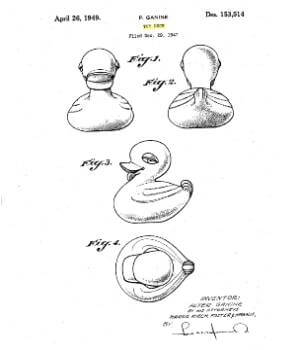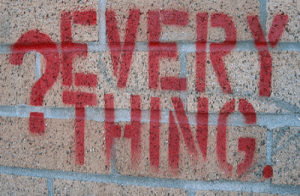January 13 is National Rubber Ducky Day
 Today is National Rubber Ducky Day, also known as Rubber Duckie Day. It is always celebrated on January 13th. While we could find no official birth certificate, we discovered some cool facts about the classic bath toy.
Today is National Rubber Ducky Day, also known as Rubber Duckie Day. It is always celebrated on January 13th. While we could find no official birth certificate, we discovered some cool facts about the classic bath toy.
In the late 19th century, the burgeoning rubber industry introduced rubber tires, bouncy balls and all manner of molded items. The first rubber duck–a decoy, not a toy–was patented by George Nye on October 26, 1886.
The first patent for a rubber duck toy was issued on May 8, 1928, to L.L. Smart. It was weighted so when it was tipped, it would return to its upright position.
During World Wars I and II, rubber became a valuable commodity, subject to rationing. Manufacturers began to make rubber duckies of cheap, readily-available vinyl plastic, but never changed the name. (“Vinyl plastic ducky” doesn’t have the same ring.)
The rubber duck as we know it was designed by Russian-American sculptor Peter Ganine, who patented the “uncapsizeable duck” on April 26, 1949, and reproduced it as a plastic floating toy.
Ganine was also known for his elaborate chess piece designs including the three-dimensional chess set featured on the Star Trek television series.
On February 25, 1970, a Muppet named Ernie on Sesame Street sang an ode to his favorite toy. “Rubber Duckie” reached 16 on Billboard’s Hot 100.
“Rubber Duckie, you’re the one. You make bathtime lots of fun. Rubber Duckie, I’m awfully fond of you.”
A shipment of 28,000 rubber ducks and other toys bound from China to Washington State went overboard in a storm on January 10, 1992.
Some floated north and became trapped in the Arctic ice pack, which slowly moves east. The trapped ducks traveled up to seven years in the ice before thawing in the North Atlantic and floating on to the eastern U.S., England, and the world. They’ve been washing ashore ever since.
Thousands are still floating today. The next time you go to the beach, you may find one waiting for you. It will have faded to white but will otherwise be ready to trade the open seas for your bathtub.
Happy National Rubber Ducky Day!
![]()




